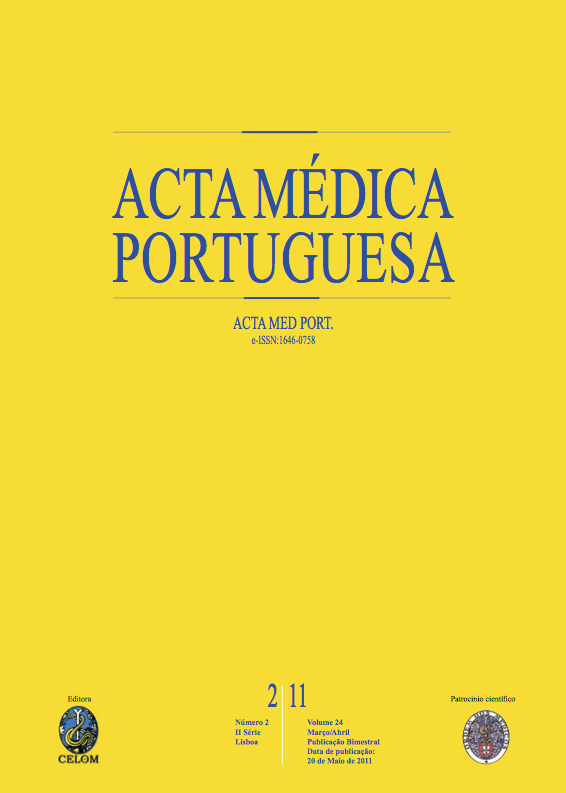Forensic procedures for interview physical exam and evidence collection in children and young people victims of physical and/or sexual abuse.
DOI:
https://doi.org/10.20344/amp.1613Abstract
The public nature of child abuse crime (domestic violence, maltreatment and sexual crimes) implies the opening of a criminal enquiry as soon as facts likely to be considered as such are known. Professionals who suspect of these cases are considered mandatory reporters as is the case of health care professionals. The work with abused children and youth involves several courses of action between institutions, namely as to the starting procedures to follow in case triage, reporting of suspicion, diagnosis and preservation of evidence for penal purposes, as well as to the protection of the victim(s), all of which still lack a clear definition in Portugal. Several professionals often take part simultaneously in these early procedures and it is crucial that their own personal intervention be articulated with one another's. With the aim of promoting that adequate articulation between the professionals and the acting services, technical orientations to be followed have to be established, namely as far as the articulation between the medicolegal services and the health care services are concerned. These orientations should aim at: ruling the reporting of the occurrence in good time; guarantee an appropriate collection of evidence; guarantee good medical procedures in medical exams and evidence collection; avoid repetition of exams of the victims, preventing secondary victimisation and cross-contamination of child report. Based on the internationally accepted rules for the matter and taking into consideration the Portuguese reality, namely in legal terms, the authors made a proposition concerning the procedures for the intervention in such cases that are herewith presented and were approved as General Recommendations for the Examination in Cases of Suspicion of Domestic Violence, Maltreatment or Sexual Crime Against Children by the National Institute of Legal Medicine, in January 2010. These were later confirmed by the Specialty College of Legal Medicine of the Medical Board Association.Downloads
Downloads
How to Cite
Issue
Section
License
All the articles published in the AMP are open access and comply with the requirements of funding agencies or academic institutions. The AMP is governed by the terms of the Creative Commons ‘Attribution – Non-Commercial Use - (CC-BY-NC)’ license, regarding the use by third parties.
It is the author’s responsibility to obtain approval for the reproduction of figures, tables, etc. from other publications.
Upon acceptance of an article for publication, the authors will be asked to complete the ICMJE “Copyright Liability and Copyright Sharing Statement “(http://www.actamedicaportuguesa.com/info/AMP-NormasPublicacao.pdf) and the “Declaration of Potential Conflicts of Interest” (http:// www.icmje.org/conflicts-of-interest). An e-mail will be sent to the corresponding author to acknowledge receipt of the manuscript.
After publication, the authors are authorised to make their articles available in repositories of their institutions of origin, as long as they always mention where they were published and according to the Creative Commons license.









